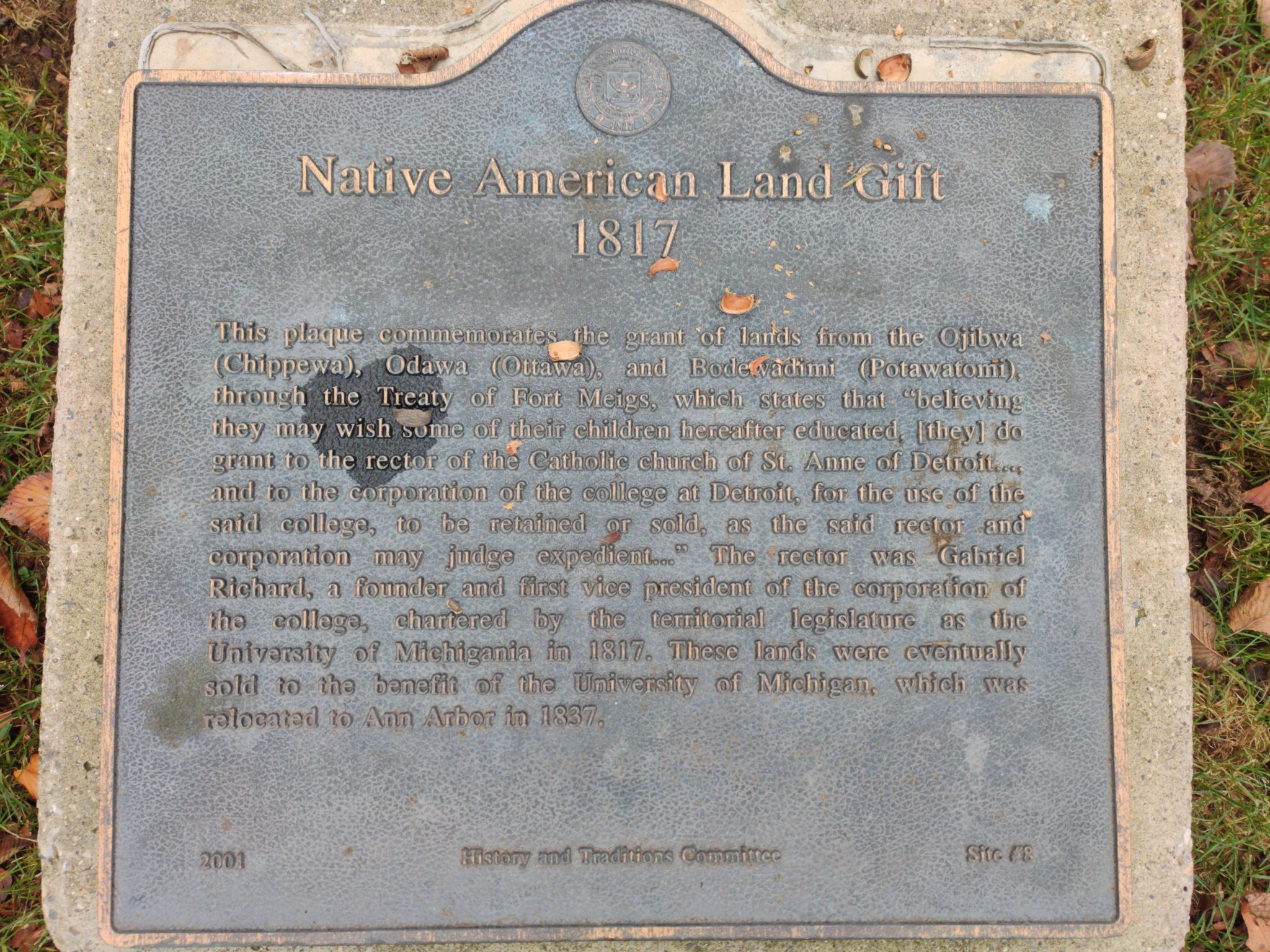CultureShift: The importance of land acknowledgments and honoring Michigan’s Indigenous peoples
A land acknowledgment is considered the first step in recognizing Indigenous communities’ ongoing connection to and history of the land.

A historic plaque acknowledging the gift of land formerly held by Native American groups to the University of Michigan, located just north of the Diag, between the School of Kinesiology Building and the Chemistry Building.
What do you know about the history of the land that you’re currently standing on? Its past, its present and those who occupied this land first?
In 2020, Wayne State University joined Michigan State and a host of other schools across the state that have put out formal statements recognizing the unique and enduring relationship that exists between Indigenous peoples and their traditional territories — also known as land acknowledgements.
Wayne State University for example, rests on Waawiyaataanong, also referred to as Detroit, the ancestral and contemporary homeland of the Three Fires Confederacy. These sovereign lands were granted by the Ojibwe, Odawa, Potawatomi, and Wyandot nations in 1807, through the Treaty of Detroit, according to the university.
Kevin Leonard, interim director of the MSU Native American Institute, has worked within various departments over the past 20 years to build relationships with tribal communities and encourage an increase in the number of Indigenous applicants.
Through his work, he also hopes to bust misconceptions about Michigan’s Indigenous population, like for example, the belief that Native peoples are not currently among us or even still linked to the land.
In an interview with WDET, Leonard — a member of the Sault Ste. Marie Tribe of Chippewa Indians himself — also spoke about microaggressions that are all too prevalent in today’s society, though to some they may seem harmless.
“Some of them is what I call everyday lexicon, you know, it’s unfortunate,” he said. “So, we may not tie that in with microaggressions, but when they’re said they are seen and felt that way by individuals such as myself and others.”
Leonard says certain terms or titles matter in their communities and aren’t just throw away terms.
“I’ve been called Chief before, you know ‘hey Chief,’ I’m not a Chief, I have not earned that honor with my tribe in any way, shape, or form,” he said. “It diminishes the role of our Chiefs or omegas in our communities.”
Listen: Full conversation between CultureShift’s Tia Graham and Kevin Leonard about Michigan’s Native population
Ways to learn more:
Listen to CultureShift weekdays from noon to 2 p.m. ET on 101.9 FM and streaming on-demand.
Support the shows you love.
WDET’s unique music programs are dedicated to exploring the music and culture of our region and the world.
Keep the music going. Please make a gift today.

